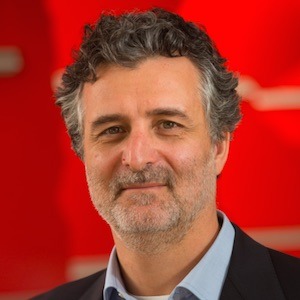About "la Caixa" Foundation Research Grants on Socioeconomic Well-being
Funded by "la Caixa" Foundation, the Research Grants on Socioeconomic Well-being support ground-breaking research projects directed by Affiliated Professors of the Barcelona School of Economics. The topics investigated have direct implications for socioeconomic well-being.
Projects are selected from a competitive open call within the BSE research community, and proposals are evaluated by a Scientific Committee of experts.
Awarded projects have included such topics as economic growth, children's health, immigration, and political instability.
Select a project below to learn more about each topic:
Edition: 2019 | 2018 | 2017
2019 Edition
UPF and BSE
- Worker Reallocation, Occupational Mismatch, and Business Cycles
-
Along the business cycle, labor markets face a large amount of reallocation: firms create and destroy vacancies, work relationships are formed and resolved, and workers change jobs and occupations. Some argue that recessions generate a cleansing effect—the most unproductive jobs are destroyed and reallocation speeds up, counteracting the effect of the downturn. In contrast, others argue that recessions generate a sullying effect—job search becomes more disorganized and movements along the job ladder slow down, deepening the recession. In this project, we analyze the role of information frictions and labor market imperfections in generating occupational mismatch—the misalignment between workers’ abilities and the requirements of their occupations, and assess quantitatively how mismatch interacts with the business cycle. Understanding the frictions underlying labor market reallocation and measuring the relative strength of the cleansing and sullying effects are key for informing the design of policies aimed at stabilizing economic fluctuations as well as promoting long-run growth.
- Assortative Mating and Joint Income Dynamics of Couples
-
This project uses rich tax register data from Denmark to explore empirical regularities in matching patterns of couples and to take high-resolution pictures of the labor income dynamics of males, females and the joint income dynamics of couples. The goal is to answer questions like: To which extent are spouses exposed to similar labor market risks? What are the sources of this similarity (e.g., spouses work in similar careers, in the same local labor markets, and so on)? In light of this correlation, how well can they insure against individual risks? In order to understand the relative importance of several forces generating the observed empirical patterns of household formation and the link to income dynamics, the second part of the project plans to set up a quantitative structural model. This model can be used as a laboratory in which to explore how individuals react to changes in the degree of correlated risks, how the success of within-household insurance against individual risk interacts with the degree of sorting along various dimensions, and finally how changes in the tax and transfer system affect joint income dynamics.
External researchers: Rocío Madera (SMU Dallas) and Fane Groes (Copenhagen Business School)
UPF and BSE
- The Effects of Firm-Level Uncertainty on Firm Employment Decisions
-
It is well known that fluctuations in uncertainty have significant economic consequences. Recent events related to Brexit, the Trade War between US and China, and rising geopolitical tension between Saudi Arabia and Iran, are examples of large uncertainty shocks, and it is important to understand how they might affect the economic decisions of households and firms.
This project aims to provide novel empirical evidence on the relation between firm-specific uncertainty shocks and firm employment decisions. We will use matched employer-employee data from the whole active population of Sweden over almost three decades – between 1990 and 2017. Beside the availability of high quality data, one key element of the project is the identification of fluctuations in uncertainty that are exogenous from the point of view of the firm.
We will use machine-learning methods (Lasso, elastic net) to estimate the firm-level exposures to fluctuations in commodity prices, and we will use them to construct exogenous measures of firm-specific uncertainty shocks. We will then analyse the effect of these shocks on firm employment dynamics. The decisions of interest go beyond the number of employees and focus more on issues regarding the composition of the firm’s labor force in terms of tenure, human capital and age, among others. These decisions also interact with the incentives of employees to acquire general or specific human capital, with potential spillovers that go beyond the firm’s scope.
External researchers: Vicente Cuñat (London School of Economics), and Daniel Metzger (Stockholm School of Economics)
- A New Approach to Estimate the Effects of Conventional and Unconventional Monetary Policy
-
This project proposes a new approach to analyze economic shocks. The new procedure identifies economic shocks as exogenous shifts in a function or "functional shocks". We show how to identify such shocks and how to trace their effects in the economy using a procedure that we call "VARs with functional shocks".
Using the new procedure, we address the crucial question of studying the effects of monetary policy by identifying monetary policy shocks as shifts in the whole term structure of government bond yields in a narrow window of time around monetary policy announcements. The proposed identification aims at shedding new light on the effects of monetary policy shocks, both in conventional and unconventional periods, and showing that traditional procedures may miss important effects.
- Preliminary results show that, overall, unconventional monetary policy has similar effects to conventional expansionary monetary policy, leading to an increase in both output growth and inflation; the response is hump-shaped, peaking around one year to one year and a half after the shock. The new procedure has the advantage of identifying monetary policy shocks during both conventional and unconventional monetary policy periods in a unified manner and can be applied more generally to other economic shocks.
CREI, UPF and BSE
- Understanding and Regulating Complexity in Markets
-
Regulatory reform of the financial system has been one of the most pressing policy debates in the European Union in recent years and has highlighted the need for a new set of rules adapted to a more integrated, globalized, and complicated financial landscape. In this context, both market participants and policymakers have raised the issue of rapidly increasing complexity.
Motivated by this, this project explores the determinants and implications of asset complexity and market opacity in environments with asymmetric information, and the role of regulation in enhancing efficiency. In the first part, we explore the incentives of product designers to produce complex products—products that are difficult to understand—and how complexity interacts with their incentives to design good quality products. In the second part, we explore the implications of opaque markets—where risk exposures of counterparties are not observable—for the design of securities and resulting market liquidity. Within these frameworks, we study the effect of policies that aim to increase information disclosure and transparency in markets.
2018 Edition
UPF and BSE
- Economic Fluctuations, Heterogeneity and Macroeconomic Policies
-
Heterogeneity among households —in terms of their preferences, education, income and wealth— is a pervasive feature of our economies. An open question, however, is to understand to what extent such heterogeneity affects the behavior of macroeconomic aggregates, such as inflation and employment. The main goal of this project is to develop a general framework to assess the role of households heterogeneity for the propagation of aggregate fluctuations, and the effectiveness of macroeconomic policies, both in macro models and in actual economies. In addition, the project aims at proposing specific tractable models, that capture the main mechanisms through which heterogeneity affects aggregate fluctuations, and that can be used to revisit some central issues of macroeconomic policies, such as the design of fiscal and monetary policies.
- Inequality, Political Instability and Long-Term Development
-
This project aims at understanding how the unequal distribution of resources has contributed to the formation and consolidation of states on the one hand, and to political instability and conflict on the other. Two specific projects are central to this proposal. The first will investigate why states arose and developed into complex civilizations in some environments and not in others. Anatomically modern humans have lived roughly 97% of their 200,000 year-long history in stateless societies. The transition from stateless to state societies, only dating back 5,000 years, represents the starting point of institutions that are known to play a key role in economic development (property rights, taxation, law, bureaucratic rule, creation of armies, etc.), to the point that this transition can be considered as the Big Bang of economic development. Our investigation will focus on the factors that facilitated early state development and on how said factors have contributed to shape the institutional framework. Our analysis will shed light on the link between state antiquity and long-term economic development.
The second part of this proposal analyzes the contemporary drivers of class conflict. Intuitive as it may seem researchers in economics and in political science have been unable to find significant empirical evidence on the effect of income inequality on class conflict. Should we then abandon this nexus as a main cause of social conflict? We claim that previous empirical work has failed to obtain positive results because this nexus is more complex than a mere linear relationship between conflict and the Gini coefficient. Our project consists of building a richer model, obtain which are the main drivers and their interrelation, and use the result of the model as a guidance for the empirical work. One of the new dimensions our model wants to incorporate is that effective social struggle needs both bodies and finance. While the poor's activism is essentially based on time contributed [strikes, demonstrations...] the rich use their money in order to obtain favorable changes of the status quo. An implication of this fact is that when inequality is very high, direct class conflict can become prohibitively costly. We expect to derive a non-linear relationship between income inequality and social conflict thus explaining the apparent ambiguous role played by inequality.
UPF and BSE
- The Economic and Political Effects of Espionage
-
The objective of this project is to study quantitatively the economics behind industrial and political espionage. The historical context in which I will approach this research question is the cold war era during which the East German Ministry for State Security (the “Stasi”) engaged in extensive industrial and political espionage in the Western world. Exploiting a unique data set that comprises complete records about all the information the Stasi received from its informants in the West between 1969 and 1989, I will first empirically assess the effect of East Germany’s industrial espionage activities on the performance of its own economy. I will then turn to the political side of espionage and analyze whether there is any evidence for interference of the Stasi in West German public and political life. The final part of the project will focus on the individual informants and analyze the underlying motivation for people to steal secrets for a foreign government.
- Social Insurance and Economic Growth
-
The goal of this project is to analyze the potential trade-offs between the provision of social insurance and productivity through village networks. If productive individuals within a village are subject to implicit progressive redistributive taxes, this can have pervasive implications for incentives to work, accumulate wealth, migrate and ultimately grow. In our investigation we plan to collect a new data set of consumption, income, and network information for a complete village in rural Malawi in order to keep track of the status quo redistributive tax/subsidy scheme and its relation to productivity within village. In this context, we plan to model and estimate pairwise transfer schemes along a village network and study the optimal provision of social insurance.
UPF and BSE
- Coordinating against the Mafia: Experimental Evidence from an anti-Racket Policy in Sicily
-
The mafia is often considered one of the main causes of the “questione meridionale”, the historical social and economic gap between Northern and Southern Italy. The most visible aspect of the mafia in the local economic environment is the “pizzo”, a slang term for protection money paid to the mafia under extortion. Recent estimates show that more than two thirds of Sicilian firms pay the pizzo and the average monthly payment is about 880 euros (i.e. it is actually higher than the average tax burden!).
Why aren’t these firms able to coordinate and jointly refuse to pay the pizzo? Previous literature has conjectured that the payment of the pizzo can be rationalized in a context in which lack of trust makes it difficult for businesses to share information and coordinate against the mafia. The aim of this project is to test this conjecture and provide related policy indications by means of a field experiment. Specifically, we will test and evaluate the effectiveness of a policy aimed at increasing the level of generalized trust and, through this channel, at inducing entrepreneurs to be more vocal in opposing the payment of pizzo.
To this purpose, we exploit a unique phenomenon of rebellion that has emerged in Italy: the creation of Addiopizzo, an NGO that unites firms that voluntarily and collectively refuse to pay protection money. A crucial element for success of this action is that a firm’s anti-pizzo stance is made public, as a signal to other firms of lower costs of rebelling, thus triggering a virtuous contagion effect. Nonetheless, we have collected preliminary evidence that: 1. a large number of firms in the Addiopizzo network do not publicize their membership 2. firms in the network underestimate the number of Addiopizzo members in their neighborhood.
The field experiment will test whether increased information and easier coordination among Addiopizzo firms have positive effects on the engagement in the association and, eventually, on the perception of the pizzo among customers, residents and other firms.
2017 Edition
Projects completed in 2019.
- "Analyzing Conflict from Space"
Andre Groeger (UAB and BSE) and Hannes Mueller (ICREA-IAE and Barcelona GSE)
- "Causal Effects of Early Interventions on Child Health and Cognitive Development"
Libertad Gonzalez (UPF and Barcelona GSE)
- "Labor Market Effects of Selective Immigration Policies"
Joan Llull (UAB, MOVE and Barcelona GSE)
- "Stabilization Policies and Growth: A Keynesian Growth Perspective"
Luca Fornaro (CREI, UPF and Barcelona GSE)
- "Understanding Risk and Time Preferences"
Jose Apesteguia (ICREA-UPF and Barcelona GSE)
View results from 2017 edition
 Isaac Baley
Isaac Baley












